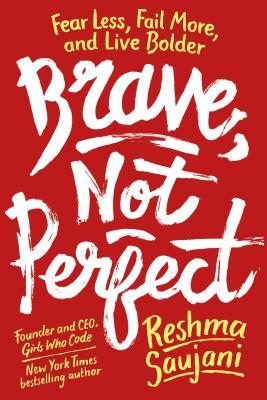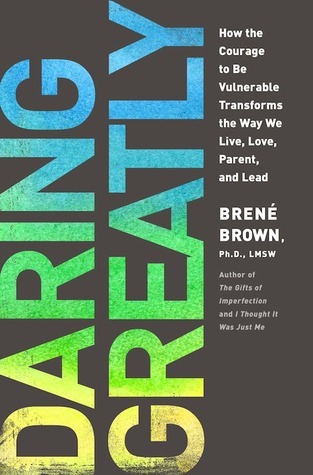
Brave, Not Perfect: Fear Less, Fail More, and Live Bolder
Book Description
Fear can be a thief, stealing dreams and stifling potential, but what if embracing imperfection was the key to a bold, vibrant life? In "Brave, Not Perfect," Reshma Saujani ignites a powerful movement that dares to challenge the status quo of perfectionism. Through inspiring stories and actionable insights, this book serves as a clarion call to break free from self-doubt and take bold risks. Each chapter is a step into a world where failure is not a setback, but a launchpad for growth. Are you ready to ditch perfection and discover the daring life that awaits?
Quick Book Summary
"Brave, Not Perfect" by Reshma Saujani is an empowering call to women everywhere to release the debilitating quest for perfection, which often leads to fear of failure and inhibition. Saujani combines personal anecdotes, research, and real stories to illustrate how girls are often raised to be perfect, while boys are encouraged to be brave and take risks. By shifting the focus from perfectionism to embracing bravery, Saujani encourages women to fear less, take more risks, and redefine their relationship with failure. The book provides practical strategies for cultivating courage, silencing the inner critic, and stepping boldly outside comfort zones. Ultimately, Saujani’s message is that embracing imperfection is the path to a more fulfilling and authentic life.
Summary of Key Ideas
Table of Contents
The Problem with Perfectionism
Reshma Saujani opens her book by diagnosing a widespread but often invisible epidemic: the pressure on girls and women to be perfect in every facet of life. She argues this begins in childhood, where girls are rewarded for being polite, careful, and successful, internalizing standards that make them risk-averse and fearful of mistakes. This pursuit of perfection leads to anxiety, missed opportunities, and a reluctance to pursue ambitious dreams. The author lays the groundwork for why conquering perfectionism is essential not just for individual happiness, but for societal progress.
Redefining Bravery for Women
The narrative then turns toward the idea of bravery, reframing it from the stereotypical image of heroics to an everyday practice of speaking up, facing fears, and taking chances. Saujani highlights how courage is a learned skill and asserts that women can cultivate bravery by stretching themselves beyond their comfort zones. Through stories of women who have done so—whether launching businesses, advocating for themselves at work, or navigating personal challenges—she demonstrates that bravery isn’t a trait you’re born with, but a muscle you can strengthen.
Learning from Failure
The author dedicates significant attention to the value of failure, challenging the cultural stigma that surrounds it, especially for women. She posits that failure is not only inevitable but vital for growth and innovation. By showing examples from her own journey, including running for political office and experiencing public defeat, Saujani normalizes setbacks as stepping stones. This perspective shift helps readers build resilience and realize that the fear of failing is often worse than the act itself. Learning from mistakes becomes an essential component of living bravely.
Practical Strategies for Courage
Practical advice is woven throughout the book, offering concrete tools for overcoming fear and acting with courage. Saujani suggests setting small, manageable goals that gently push boundaries, learning to identify and quiet the inner critic, and seeking out supportive communities. These strategies work together to help women gradually adjust their tolerance for risk and discomfort, making bravery feel accessible. The author encourages readers to give themselves permission to be imperfect, reinforcing that progress comes from action, not from waiting to be ready or flawless.
Cultivating Authenticity over Approval
In conclusion, Saujani urges women to prioritize authenticity over external approval, noting that true fulfillment comes from aligning with one’s values and desires instead of conforming to others’ expectations. By embracing vulnerability and imperfection, women can experience richer, more meaningful lives. The book ends with an inspiring message: when women choose bravery over perfection, they not only expand their own possibilities but help pave the way for others to do the same, creating a ripple effect of courage and change.
Download This Summary
Get a free PDF of this summary instantly — no email required.





